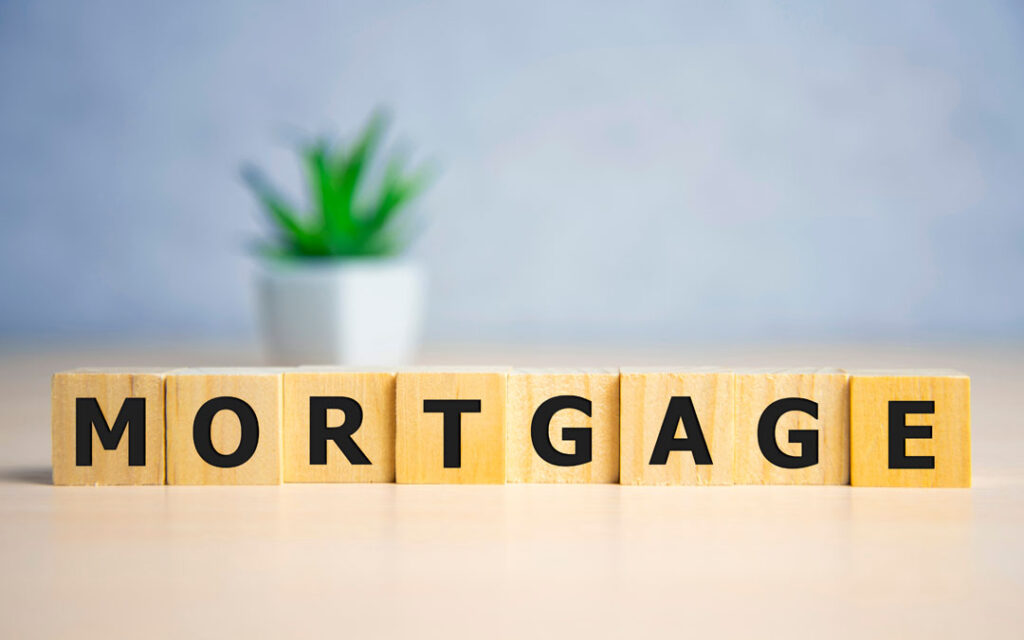
Purchasing a home or property is a significant financial decision that often requires a mortgage to make it happen. Simply put, a mortgage is a type of loan that enables borrowers to purchase or maintain real estate by paying the lender over time through a series of regular payments, with the property serving as collateral to secure the loan.
However, the mortgage selection process is no easy feat. Prospective borrowers must apply through their preferred lender and meet several requirements, including minimum credit scores and down payments, to be considered eligible for a loan. From there, the different types of mortgage application undergoes a thorough underwriting process before reaching the closing phase.
During the underwriting process, lenders scrutinize the borrower’s financial history and documentation to determine if they are a suitable candidate for the loan. This rigorous process is designed to mitigate risks and protect both the lender and the borrower in the long run.
Fortunately, borrowers have different options to choose from when it comes to mortgage types. For example, conventional and fixed-rate loans are two common options that cater to the varying needs of borrowers. In essence, a mortgage is a significant investment that requires careful consideration and planning.
Let’s understand the basics of the mortgage application process to make informed decisions that can help homebuyers to achieve their dream of homeownership.
Types of Mortgages
When it comes to mortgages, there are a plethora of options available to potential homebuyers. The most popular types of mortgages are the 30-year and 15-year fixed-rate options, which offer a sense of predictability and stability for borrowers.
However, there are several other mortgage terms available, ranging from short-term loans lasting just five years to longer options that span 40 years or more. While extending the repayment period may seem appealing since it reduces the monthly payments, it also means paying a higher overall amount of interest over the course of the loan.
The world of mortgages is vast and varied, with different types of loans suited to different needs and circumstances. Let’s explore some of the most common and niche types of mortgages and how to choose the best mortgages for first-time buyers.
Fixed-Rate Mortgages
The standard type of mortgage is a fixed-rate mortgage, also known as a traditional mortgage. With this type of loan, the interest rate remains constant for the entire term of the loan, allowing borrowers to budget and plan with certainty. The monthly payments for home loan lenders also remain the same, providing further stability and predictability.
Adjustable-Rate Mortgage (ARM)
On the other hand, an adjustable-rate mortgage (ARM) offers a lower initial interest rate that can change periodically based on prevailing interest rates. This type of mortgage often appeals to those who plan to sell their home or refinance before the initial term expires. ARMs usually have limits or caps on how much the interest rate can adjust each time and over the life of the loan.
Interest-Only Loans
Other types of mortgages, such as interest-only loans and payment-option ARMs, can be more complex and are best suited for financially savvy borrowers. These home mortgage interest rates loans often have lower monthly payments initially, but may come with a large balloon payment at the end of the term.
Reverse Mortgages
Reverse mortgages, unlike the other types, are specifically designed for homeowners aged 62 or older who want to access equity in their homes. The borrower can borrow against the value of their home and receive the funds as a lump sum, fixed monthly payment, or line of credit. The loan must be repaid when the borrower passes away, moves out permanently, or sells the home.
It’s important to note that while these mortgage types can provide flexibility, they also carry varying levels of risk. Borrowers should thoroughly research their options, consult with professionals, and make informed decisions to ensure they are choosing a mortgage that aligns with their financial goals and priorities.
How do you choose the right mortgage for you?
It’s important to weigh the pros and cons of each mortgage type before making a final decision. A shorter-term loan may mean higher monthly payments, but it can also mean owning a home outright sooner and paying less in interest overall. Meanwhile, a longer-term loan may be more affordable in the short term but can end up costing more in the long run.
In the end, choosing the right type of mortgage that works best for each individual will depend on a range of factors, including their financial situation, future plans, and personal preferences. By doing careful research and consulting with a trusted mortgage lender, homebuyers can make a well-informed decision and set themselves up for success in the years to come.
Common mistakes to avoid when choosing a mortgage type
Buying a home can be an exciting experience, but it’s important to avoid common mortgage mistakes. Here are ten mistakes to avoid, explained briefly:
- Not getting preapproved: Before you start house hunting, it’s crucial to get preapproved for a mortgage. This will give you an idea of how much you can afford to spend and make the buying process easier.
- Ignoring mortgage insurance: Mortgage insurance may be required if you put down less than 20% on a home. It’s important to factor in the cost of this insurance when budgeting for your mortgage.
- Not shopping around for a mortgage: Don’t settle for the first mortgage you’re offered. Shop around for the best rates and terms.
- Not keeping closing costs and fees in mind: Closing costs and fees can add up quickly, so it’s important to keep them in mind when budgeting for your mortgage.
- Not considering your loan-to-value ratio: Your loan-to-value ratio, which is the amount of the loan compared to the value of the home, can affect your interest rate and eligibility for a mortgage.
- Adding too much debt: Taking on too much debt can hurt your chances of getting approved for a mortgage, so it’s important to be mindful of your debt-to-income ratio.
- Overlooking the true cost of homeownership: The cost of homeownership extends beyond just the mortgage payment, so it’s important to factor in property taxes, maintenance, and other expenses.
- Skipping the home inspection: A home inspection is essential to uncover any potential issues with the property before you buy.
- Downplaying how long the process takes: The home-buying process can take several months, so it’s important to be patient and plan accordingly.
- Not checking your credit score first: Your credit score can affect your eligibility for a mortgage and the interest rate you receive, so it’s important to check it before you apply for a mortgage.
Conclusion
Choosing the correct mortgage that suits your need is critical and in order to do that you need to have a fair knowledge about it. Keep in mind the above points mentioned in this blog to help you navigate easier.







